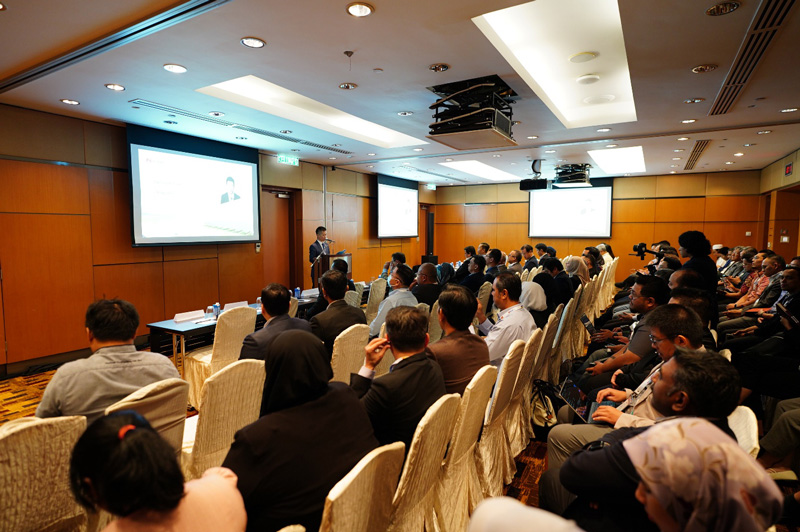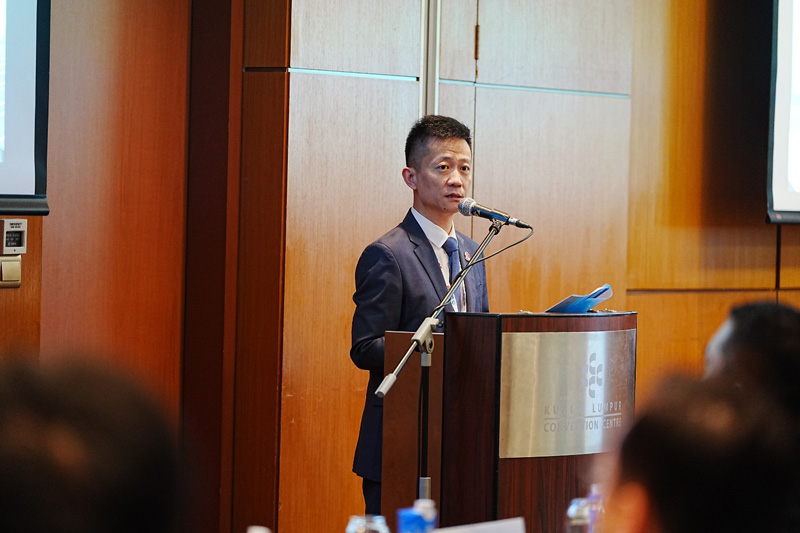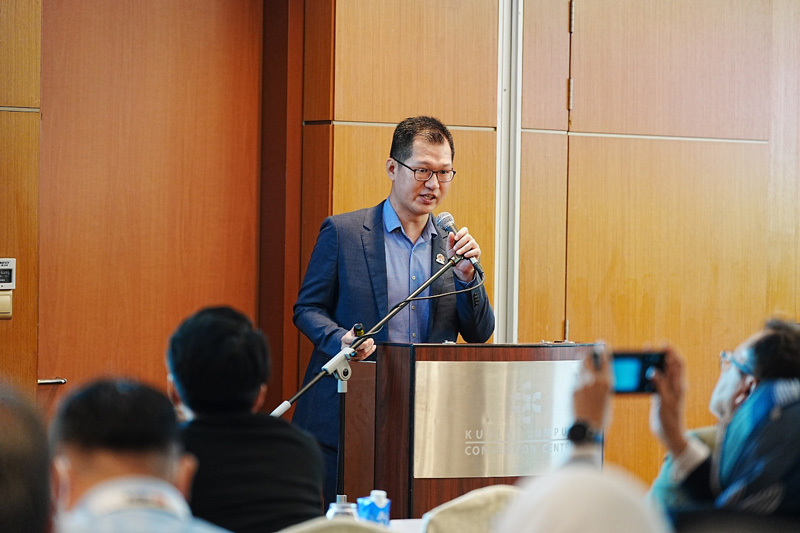[Kuala Lumpur, Malaysia, October 17, 2025] Huawei Digital Power successfully hosted the “Grid Forming ESS Forum: Malaysia Chapter” in Kuala Lumpur, drawing more than 100 key figures from government, power companies, grid operators, standard-setting bodies, and industry experts. The forum explored the application and development of Grid Forming Energy Storage Systems (ESS), focusing on safety, business models, and standardization processes, marking a significant milestone in Malaysia’s and Southeast Asia’s energy transformation.

Coinciding with the ASEAN Energy Business Forum (AEBF-25) and The International Greentech & Eco Products Exhibition and Conference Malaysia (IGEM) 2025, the forum provided a broader platform for industry insights and collaboration. Attendees had the opportunity to learn about the latest advancements in Grid Forming ESS technologies and engage in discussions with energy ministers, industry leaders, and technical experts from across the ASEAN region, exploring ways to drive smarter and more sustainable energy systems.
Creating a Sustainable Energy Future for Malaysia
The forum featured distinguished keynote speakers who enhanced the discussions by offering in-depth insights driving meaningful dialogue on their role in the energy transition. To kick off the event, Ricky Chen, President of Huawei Asia Pacific Digital Power Smart PV & ESS Business, delivered the opening address, highlighting: “The global energy landscape is undergoing a profound transformation, driven by the urgent need to reduce carbon emissions and shift toward renewable energy sources. Grid Forming ESS are at the heart of this transition, providing crucial services such as frequency regulation, black start capabilities, and voltage control, as we integrate more renewable energy into the grid. Huawei is committed to continuously innovating in high-performance ESS technologies that stabilize grids and contribute to a sustainable, resilient energy future for generations to come.”

Monika Merdekawati, the Senior Research Analyst at Sustainable and Renewable Energy (SRE) Department, ASEAN Centre for Energy (ACE) highlighted Malaysia’s leadership in ASEAN’s renewable energy transition, stating: “With the recent launch of APAEC 2026-2030 and regional roadmap, achieving our clean energy ambitions hinges on building a profoundly more flexible power grid to integrate vast amounts of renewables. This flexibility is delivered by technologies like battery storage and distributed solar. Therefore, rigorous electrical safety standards are paramount—not just to prevent hazards, but to ensure these critical assets are reliable enough to secure the stable grid of the future.”
The Director of Baringa Partners, Eng Zhen Hui, discussed the role of regulatory frameworks in unlocking the potential of Battery Energy Storage Systems (BESS), noting: “Achieving the energy transition requires sound regulatory frameworks, robust price formation and flexibility to cater for all type of scenarios.”
Ir. Norul Rafiq Namas Khan, C. Eng., the Director of Volta Forensic, remarked: “For utilities BESS is more than just batteries, it is a central shaper of the future grid. The mindset is not about chasing trends but about safety, securing grid reliability, sustainability, and economic value for years to come.”
The Technical Underwriter, Renewables at Munich Re Specialty - Global Markets, Dr. Low Zheng Hua emphasized the importance of risk management in BESS adoption: "Transparent information sharing is crucial for accurate risk evaluation, ensuring a more reliable approach to risk management. Reinsurance offers a strategic mechanism for risk transfer, where the terms and pricing reflect the quality of the risk. By investing in small upfront costs, businesses can avoid future complications and costly revisions, ensuring smoother operations and long-term success."
The Fire Safety Consultant of Fire CFD Sdn Bhd and the Director of HiLT Pte Ltd, Ir. Alan Chan, stressed the importance of safety in energy storage systems: “Lithium-ion battery fire risks stem from thermal runaway, causing uncontrollable heating, fire, explosion, and toxic gas release. Fire safety measures—detection, suppression, ventilation, and spatial requirements per UL 9540A and NFPA 855—prevent fire spread. Large-scale UL 9540A testing and case studies validate safety designs and enhance mitigation through CFD simulations and collaborative strategies.”
Last but not least, the Solution Expert from Huawei Digital Power Global CTO Office, Yong Chian Haw shared: “Grid forming ESS safety is non-negotiable, with zero incidents as the goal. By embedding safety at every level, from cell to grid, we build industrial trust, enhance efficiency, and reduce costs. Prioritizing safety isn't optional, it's essential for fostering a secure, productive environment. As we say, ‘it is better safe than sorry’—plan for safety, and prevent incidents before they occur."

Paving the Way for a Sustainable Energy Future
The forum concluded with a call for continued collaboration to drive the energy transition forward. Experts emphasized the collective responsibility to develop safer, smarter, and more adaptable energy solutions. Huawei’s Grid Forming ESS technology plays a key role in Malaysia’s energy transformation, helping the region manage its energy systems more efficiently while supporting green transformation. Huawei continues to deliver high-quality, secure, and reliable solutions, contributing to a greener, smarter, and more sustainable global energy future.

 Search
Search




 Search
Search


